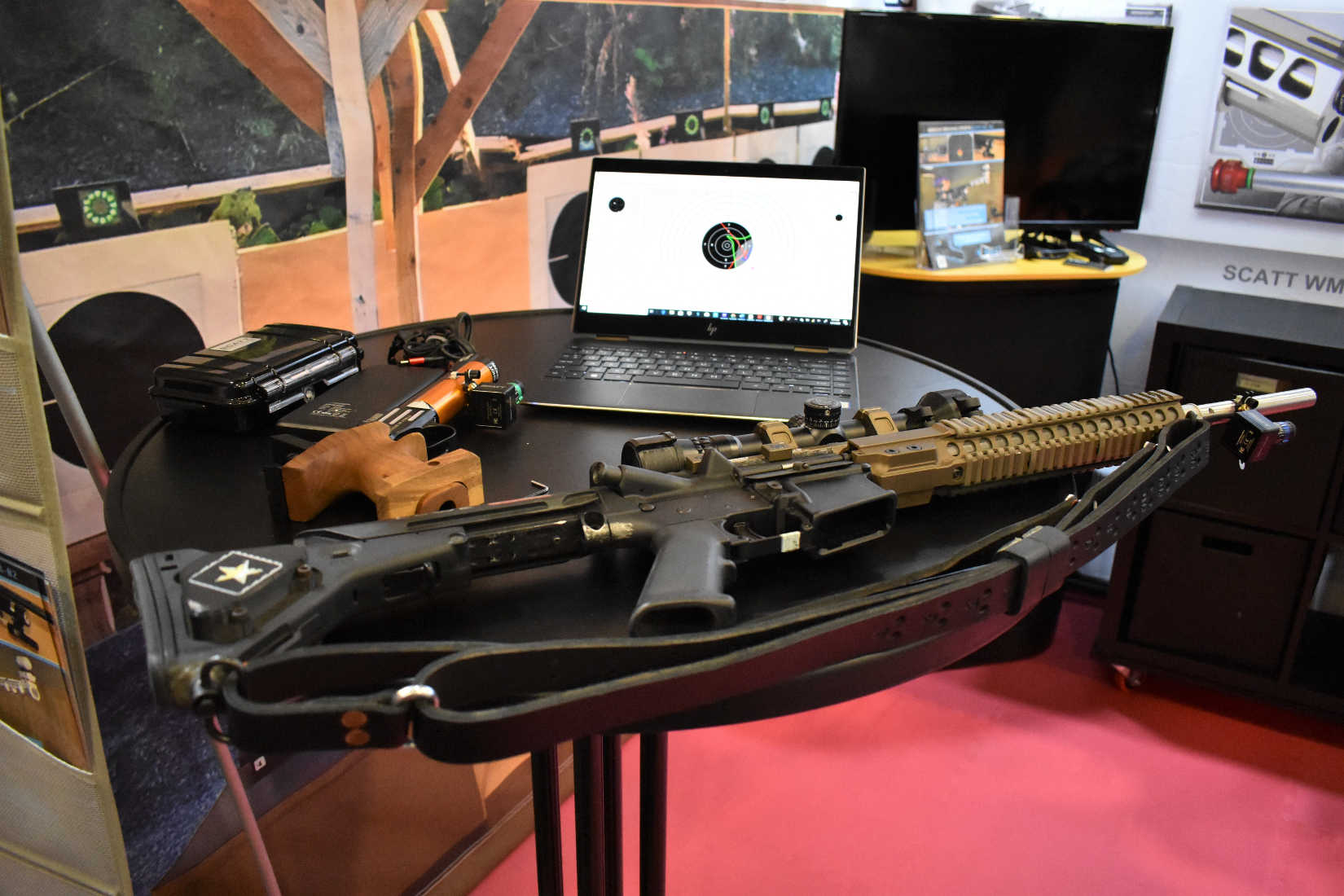By: Serena Juchnowski
Springtime usually marks the beginning of the outdoor competitive shooting season, with the indoor competition season already in full swing. Hopes have been dashed, though, and the remainder of the 2020 shooting season hangs in the balance. Some cling to the possibility that summer competitions will proceed as scheduled, that everything will suddenly return to normal.
Yearning for the camaraderie and social connection that normally accompanies this time of year, exacerbated by stay-at-home orders and the ongoing COVID-19 pandemic, some competitors have taken to more frequent use of social media platforms, taking the time to learn more about the people they see on the range. This is where the 2020 Corona Cup was born.
Service rifle competitors James Root and Eva Barin initially suggested a sort of remote match using SCATT training systems. (SCATT utilizes a camera based shooting system to record movement on the target before a shooter fires, capturing the entire shooting process. It can be used with dry-fire or live-fire.) They wanted to create something fun to engage service rifle competitors, something that could continue if the National Matches end up being cancelled this summer. Barin, a SCATT ambassador, shared the idea with USAR SPC Dan Lowe who immediately recognized the idea’s potential and over a time span of three weeks, put it into action.
The Details
Lowe, owner and operator of Firing Line Solutions, LLC, designed the match to bring shooters together, promote quarantine time training, and help shooters in need. While athletes need to have access to a SCATT to compete, anyone in the world can enter. The match encompasses four disciplines and consists of matches spaced throughout the month of April. Competitors may enter the highpower phase, precision air rifle phase, precision smallbore phase, or sporter air rifle phase. The match fee is $15 per discipline, and each shooter may enter as many scores as he/she wants during the five-day phase window. Some phase matches have a team option, which costs $25. The high-power phase begins April 7 and runs through April 11. Precision air rifle runs April 12 through April 16, precision smallbore April 17 through April 21 and sporter air rifle April 22 through April 26.
Approximately 75 percent of all proceeds will be donated to shooters suffering due to the coronavirus pandemic. Small cash prizes will be awarded to first place winners for each match. (NCAA athletes can designate a club or charity to accept prizes on their behalf.) SCATT has generously donated an MX W2, which will be drawn at random from the pool of match competitors. Entering more scores does not increase your chances in the drawing.
The Goals
Lowe has several goals in running this match: helping shooters in need, bringing multiple shooting communities together, and encouraging people to keep pushing themselves to do better in the sports that they love.
“I’m going to be reaching out to the service rifle community, the international community, and the sporter community after this competition to help me identify who needs that money the most. Cause I know a lot of people aren’t going to ask for it…there’s definitely shooters that are going to be hurting, maybe for some years to come from this, financially.”
Some have lost jobs, been laid off; others may be sick or succumb to the illness. The unknown is what makes everything scary. Lowe describes the recent upheaval of the shooting season as “ripped out from underneath us.” Luckily, for many people, this is the only casualty they are facing. Lowe also hopes that by running this match, competitors will realize that even without traditional competitions, there are still many ways to keep improving and to utilize time at home.
The 2016 Olympian and 2019 NTI winner fully believes in the SCATT system and has started renting them to make the technology available to shooters who may not be able to afford the system. Why SCATT?
“It’s kinda like the all-seeing eye. There’s no hiding errors from SCATT. It’s going to tell you everything you’re doing while at the same time letting you train extremely cost-efficiently,” says Lowe.
This does not mean that shooters who do not have such a system should be discouraged.
“You don’t have to have SCATT to get in some good training,” Lowe says. “You can dry fire, just shooting down the hallway. If people want to email me a distance, I’ll send them a proportional target to go train on so they don’t have to guess on what size target they need to make.”
It is not just about the ability to compete.
“I think there’s a lot of athletes in general, a lot of their drive and their social circle is firmly rooted in the shooting community, and right now, I feel it myself, too.”
Lowe sees the Corona Cup as a gateway into new remote match possibilities and as a way to bridge the service rifle, international, and sporter rifle communities.
Many believed that the start of the new decade would mark something special and people set even more ambitious New Year’s resolutions than usual. For competitive shooters, many of these included better performances at prestigious matches. While the ongoing global crisis is not what people expected, nor wanted, it does not mean people have to give up on their goals. Life is what you make of it, and stay-at-home orders have afforded people an opportunity to get creative in ways they never would have considered.
Stay safe, take precautions, and take a moment to reach out to others, especially those in the shooting community. Learn something new, dry-fire, reload, enter the Corona Cup…help others during this time, and if you are one of those struggling, stay strong. This initiative shows that people care.
Those interested in acquiring the match bulletin and/or dry fire targets can email [email protected].
Serena Juchnowski is a high power service rifle competitor and regular contributor to Junior Shooters magazine, writing from Ohio. Contact her at [email protected].

